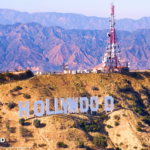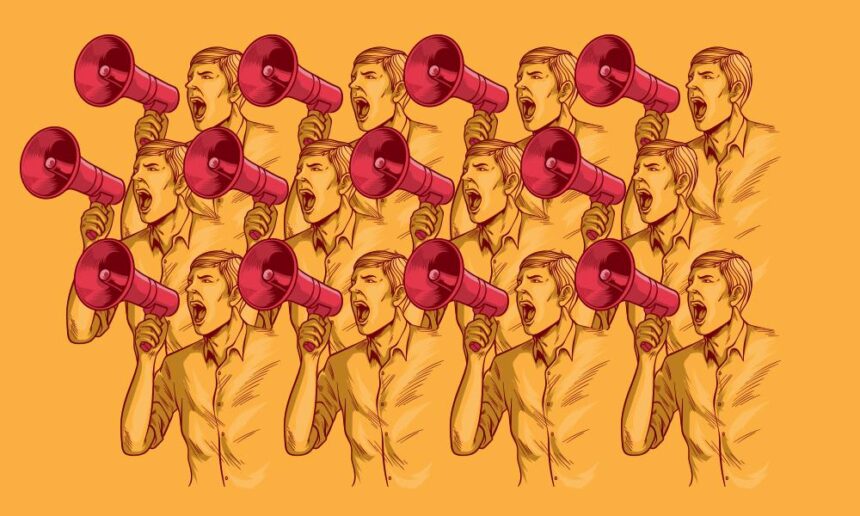
Human rights are the fundamental rights and freedoms that are inherent to all human beings from birth to death. Everyone is entitled to this right, no matter where they were born, their beliefs, or how they choose to live. No one can deprive us of this right, except for the state which can limit it when an individual violates the law or poses harm to national security.
Fundamental rights include a person’s inalienable and indivisible right to life and the right to express one’s opinion. This inalienable right is based on social values such as dignity, justice, equality, respect, and independence. In a democracy, these values are defined and protected by law.
The Constitution of Mongolia clearly states the fundamental rights and freedoms that citizens are entitled to (Article 16) and the basic responsibilities (Article 17). As a democracy, the state protects human rights by law while enforcing citizen responsibilities, whereas the civil society monitors the state’s work and requires it to make up for its shortcomings.
The Universal Periodic Review (UPR) was established in 2005 by the United Nations Human Rights Council (HRC) to assess the human rights situation every five years in its 193 member states. Not long ago, Mongolia has submitted a report on the human rights situation for the third time to this organization, while just having received specific conclusions and recommendations on the previous two reports from the UPR. The recent meeting with the Council took place online. Follow-up recommendations will be received soon.
For UPR discussions, the government submits the national report, while the National Human Rights Commission, the NGO Forum, and the UN specialized agencies in the country send their respective data and conclusions. This time, the report of the Government of Mongolia was presented by B. Baasandorj, State Secretary of the Ministry of Justice and Home Affairs, while members of the NGOs participated as observers.
Mongolian human rights NGOs have their own forums and submit their reports collectively. This report included the following issues:
- National human rights mechanism
- Uncoordinated Policy Development-Human Rights
- Group rights
- Health insurance system
- The right to freedom of expression
- The right to freedom from torture
- Sexual violence
- Human trafficking
- Domestic violence
- The issue of sexual minority rights
- Youth political participation reports.
Of these, only one will be highlighted in this article for International Human Rights Day, which is celebrated worldwide on December 10 each year.
Freedom of Expression
The right to freedom of expression is emphasized for a reason. Because in the absence of this right, all other rights will be violated. Article 16.16 of the Constitution states that Mongolian citizens “Have the freedom of thought, opinion, expression, speech, press, and peaceful assembly. The procedures of organizing demonstrations and other assemblies are determined by law.” However, this article is not being fulfilled. The UN Human Rights Council reviewed this in 2015, and specific recommendations were given for this issue. Of the seven recommendations on freedom of expression, Mongolia has not implemented any of them. These include:
- Bringing relevant national legislation in line with the International Covenant on Civil and Political Rights and ensuring the independence of the Communications Regulatory Commission.
Not implemented. Although the Parliament amended the Law on Communications on May 30, 2019, it did not bolster the regulatory body’s independence.
- Defamation should not be considered a crime
Not implemented. The Mongolian government not only failed to implement this recommendation but worsened the situation. Defamation was resolved under the ‘Law on Infringement’ between 2017 and 2019, but on January 10, 2020, the Criminal Code of Mongolia was amended to criminalize the dissemination of false information. From July 2018 to March 2019, when the ‘Law on Infringement’ was implemented, defamatory violations were recorded for 46 journalists under Article 6.21. Twelve of them were found guilty and were fined. According to an October 2019 report by the Mongolian Globe International Center to the UN Human Rights Council, this article should be repealed. To this day, one in three journalists has been summoned to the police for “defamation.”
- Ensure that media and civil society workers can operate freely to report and criticize the government and local organizations’ activities without fear and are protected from persecution and threats.
Not implemented. Of the 300 journalists surveyed by the Globe International’s Journalists’ Safety Survey, 67 percent stated that they were threatened, harassed, or insulted to some extent. Fifty-eight percent had their pieces of equipment attacked, 36 percent got harassed by the judiciary or law enforcement, and 18 percent were assaulted physically. This is especially true for young journalists under 35 who work for the television, websites, and newspapers.
- Protect whistleblowers and journalists’ right to confidentiality of source.
Not implemented. Journalists in the National Anti-Corruption Program are not complying with the provisions on the right to confidentiality of sources and whistleblowers’ protection. Fifty-one percent of the 300 journalists surveyed were required to disclose their sources.
- Ensuring the right to express one’s views online.
Not implemented. It is still possible for an investigator to access a communication network without court order, and only with the prosecutor’s permission to seize control and obtain the contents of the transmitted information from the relevant organizations. The Communications Regulatory Commission (CRC) enforces the use of word filters in website comment sections through its “General Terms and Conditions of Digital Content.” However, this requirement is not registered in the Ministry of Justice and Home Affairs’ normative act. These can only be enforced after registration.
- Modify any form of restriction of rights to comply with the principles of legality, necessity, and norms.
Not implemented. The ‘Law on State and Official Secrecy’, adopted in 2016, came into force on September 1, 2017. This law made the ‘Law on Approving the List of State Secrets’ invalid. The number of classified information increased from 60 in 2017 to 565 in 2019. In February 2019, the Globe International sent a letter to 16 government agencies asking for specific information, but only five provided complete information. For instance, one request was to release the names of owners of A-grade land in Ulaanbaatar. Most agencies declined to provide them with the justification that it was confidential, although it is not classified as confidential anywhere.
- Ensure the right to privacy and the right to freedom of expression within the framework of the Internet Regulation to ensure human rights thoroughly.
Not implemented. The IP address of any internet user remains to be accessible. Mongolia needs to have a legislation for data protection. Every citizen has a responsibility while expressing views freely. This responsibility is enshrined in Article 17 of the Constitution as: “to respect and abide by the Constitution and other laws; and to respect human dignity, reputation, rights, and legitimate interests.”
It is the state’s vital duty to implement the UN Human Rights Council’s recommendations thoroughly and to ensure and protect human rights.
2020.12.10
Trans. by Riya.T and Munkh-Erdene.D












